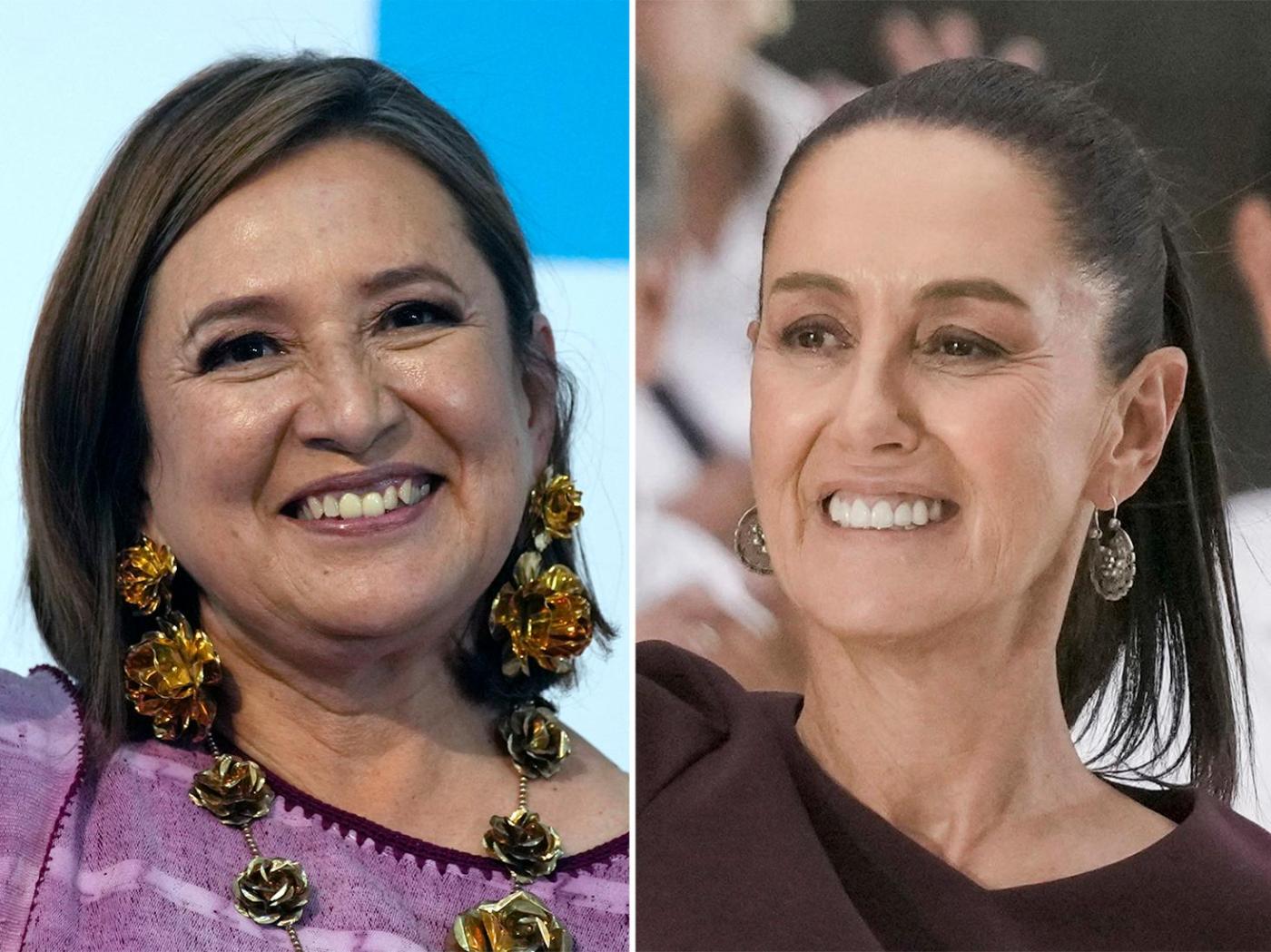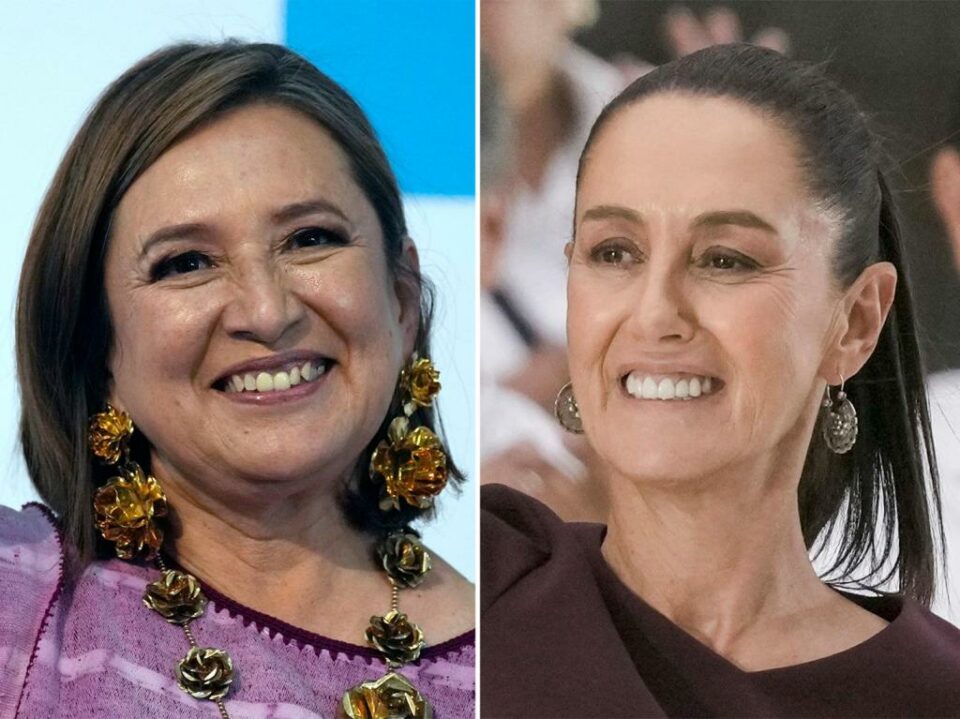[ad_1]

MEXICO CITY — Mexicans will likely choose the first female president in the country’s history Sunday between a former academic who promises to further the current leader’s populist policies and an ex-senator and tech entrepreneur who pledges to up the fight against deadly drug cartels.
Nearly 100 million people are registered to vote in the race to replace outgoing President Andrés Manuel López Obrador. Voters will also elect governors in nine of the country’s 32 states, and choose candidates for both houses of Congress, thousands of mayorships and other local posts, in the biggest elections the nation has seen and ones that have been marked by violence.
The elections are widely seen as a referendum on López Obrador, a populist who has expanded social programs but largely failed to reduce cartel violence in Mexico. His Morena party currently holds 23 of the 32 governorships and a simple majority of seats in both houses of Congress. Mexico’s constitution prohibits the president’s reelection.
Early turnout appeared to be high in the capital with long lines of voters under clear skies.
Morena hopes to gain the two-thirds majority in Congress required to amend the constitution to eliminate oversight agencies that it says are unwieldy and wasteful. The opposition, running in a loose coalition, argues that would endanger Mexico’s democratic institutions.
Both major presidential candidates are women, and either would be Mexico’s first female president. A third candidate from a smaller party, Jorge Álvarez Máynez, trails far behind.
Mexico City Mayor Claudia Sheinbaum is running with the Morena party. Sheinbaum, who leads in the race, has promised to continue all of López Obrador’s policies, including a universal pension for the elderly and a program that pays youths to apprentice.
Opposition presidential candidate Xóchitl Gálvez, whose father was Indigenous Otomi, rose from selling snacks on the street in her poor hometown to start her own tech firms. A candidate running with a coalition of major opposition parties, she left the Senate last year to focus her ire on López Obrador’s decision to avoid confronting the drug cartels through his “hugs not bullets” policy. She has pledged to more aggressively go after criminals.
The persistent cartel violence, along with Mexico’s middling economic performance, are the main issues on voters’ minds.
On the fringes of Mexico City in the neighborhood of San Andres Totoltepec, electoral officials filed past 34-year-old homemaker Stephania Navarrete, who watched dozens of cameramen and electoral officials gathering where frontrunner Claudia Sheinbaum was set to vote.
Navarrete said she planned to vote for Sheinbaum despite her own doubts about outgoing President Andrés Manuel López Obrador and his party.
“Having a woman president, for me as a Mexican woman, it’s going to be like before when for the simple fact that you say you are a woman you’re limited to certain professions. Not anymore.”
She said the social programs of Sheinbaum’s mentor were crucial, but that deterioration of cartel violence in the past few years was her primary concern in this election.
“That is something that they have to focus more on,” she said. “For me security is the major challenge. They said they were going to lower the levels of crime, but no, it was the opposite, they shot up. Obviously, I don’t completely blame the president, but it is in a certain way his responsibility.”
Julio García, a Mexico City office worker, said he was voting for the opposition in Mexico City’s central San Rafael neighborhood. “They’ve robbed me twice at gunpoint. You have to change direction, change leadership,” the 34-year-old said. “Continuing the same way is going to lead us straight to Venezuela.”
Turnout early appeared high in his neighborhood with a line around the block to vote.
In Iztapalapa, Mexico City’s largest borough, Angelina Jiménez, a 76-year-old homemaker, said she came to vote “to end this inept government that says we’re doing well and (still) there are so many dead.”
She said the violence plaguing Mexico really worried her so she planned to vote for opposition candidate Xóchitl Gálvez, who has promised to take on the cartels. “(López Obrador) says were better and it’s not true. We’re worse.”
López Obrador claims to have reduced historically high homicide levels by 20% since he took office in December 2018. But that’s largely a claim based on a questionable reading of statistics; the real homicide rate appears to have declined by only about 4% in six years.
About 675,000 Mexicans living abroad are registered to vote, but in the past only a small percentage have done so. Voting is not mandatory in Mexico, and overall turnout has hovered around 60% in recent elections. That compares to turnout in recent U.S. presidential elections. An exception was in 2020, when the matchup between then-President Donald Trump and future President Joe Biden pushed U.S. voter turnout to 67%, its highest point in decades.
Just as the upcoming November rematch between Biden and Trump has underscored deep divisions in the U.S., Sunday’s election has revealed how severely polarized public opinion is in Mexico over the direction of the country, including its security strategy and how to grow the economy.
Beyond the fight for control of Congress, the race for Mexico City — whose top post is now considered equivalent to a governorship — is also important. Sheinbaum is just the latest of many Mexico City mayors, including López Obrador, who went on to run for president. Governorships in large, populous states such as Veracruz and Jalisco are also drawing interest.
Polls opened at 8 a.m. and close at 6 p.m. (0000 GMT Monday) in most of the country. The first preliminary, partial results are expected by 9 p.m. (0300 GMT Monday) after the last polls in different time zones close.
Associated Press writer Fabiola Sánchez contributed to this report.
[ad_2]
Mark Stevenson , 2024-06-02 17:24:36
Source link



